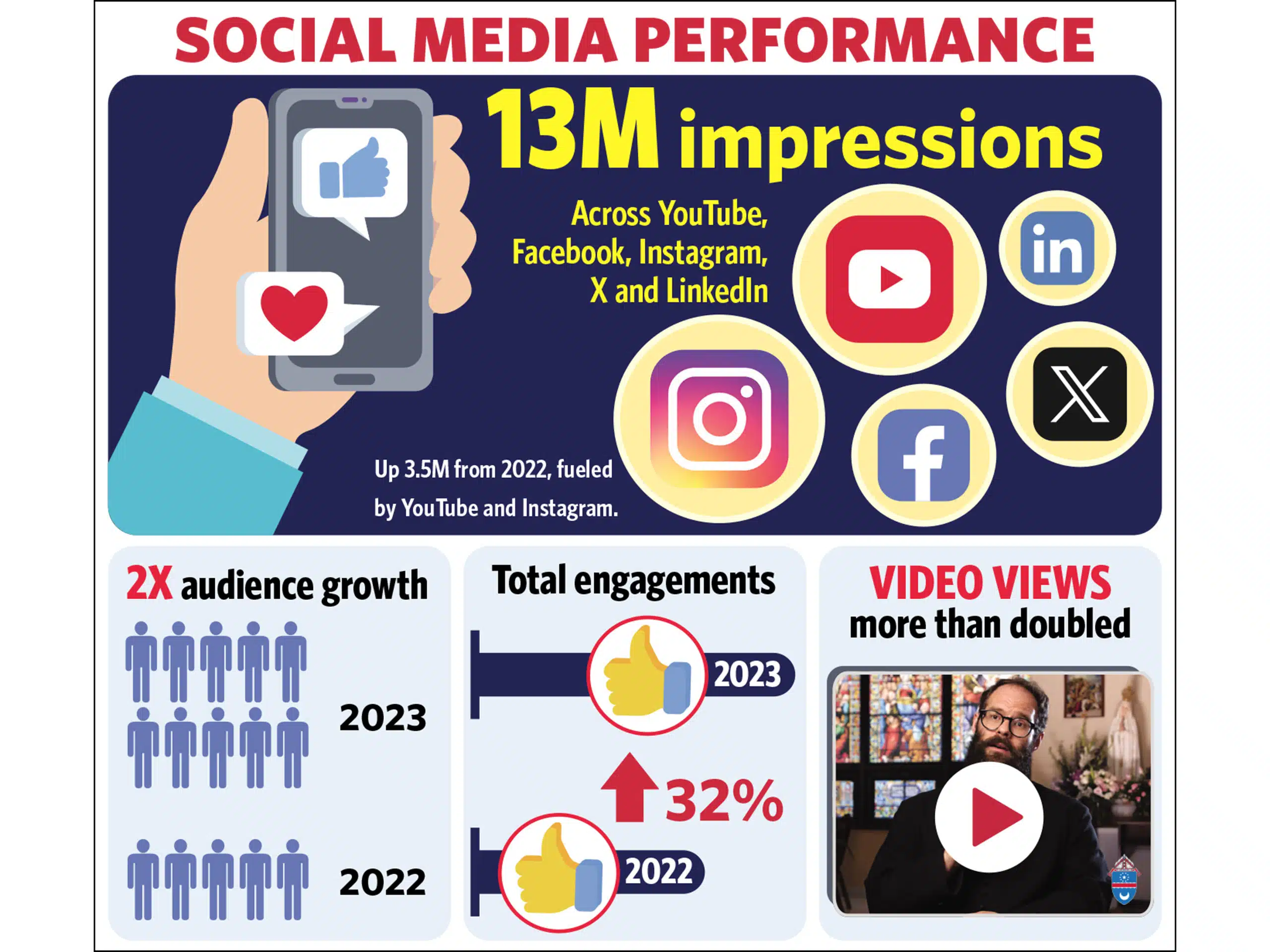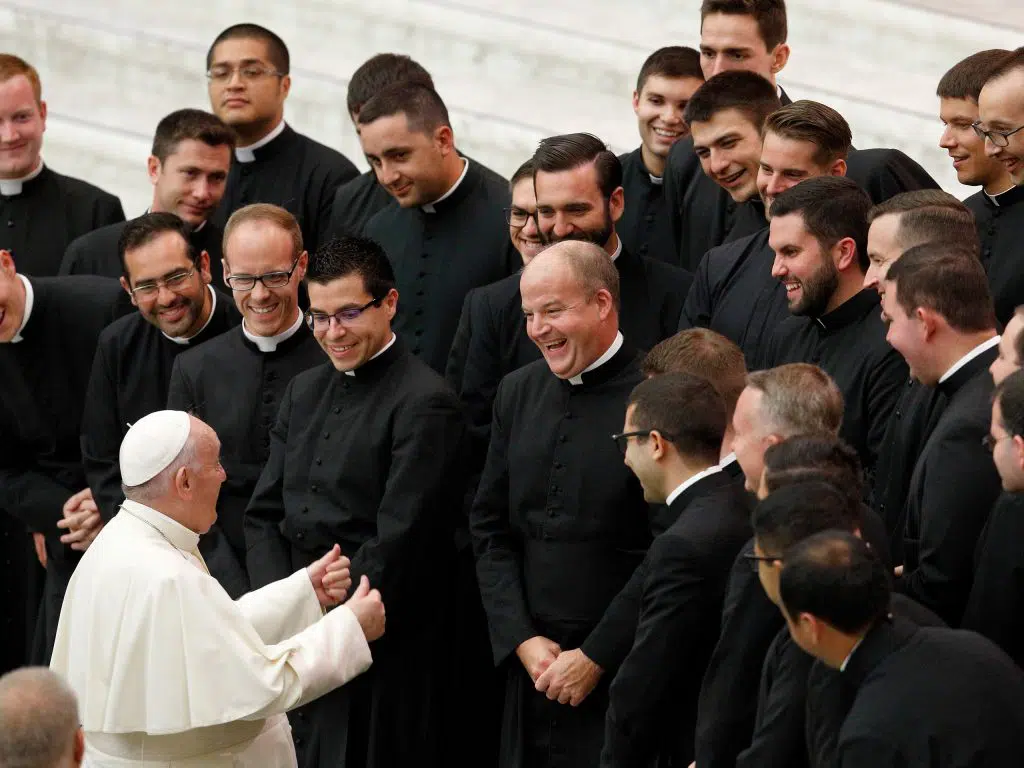Over the past 13 years, I have had the blessing of serving the Church through helping direct communications efforts. One of the best parts of this great work is that communications utilizes a variety of distinct specialties. My average day involves media relations, social media, video and audio production, news publishing (through the Arlington Catholic Herald), website design and management, special communications projects, and more. These are all pieces of what comprises the work of the Office of Communications at the Diocese of Arlington. As such, I am never bored!
In a broad sense, this work calls us to help share the message of Jesus Christ with the culture. To accomplish this mission, we are called to assist diocesan ministries in reaching their respective audiences. Additionally, we are called to support and advise our pastors and principals so that they can communicate effectively with parishioners, parents, students, and volunteers using various communications tools, both traditional and digital. We also work with the news media to help them understand the Church’s structure and teaching, as well as to guide them to stories of hope and service to the vulnerable that they may not otherwise know about. To further evangelize, we create Catholic content to share via podcasts, YouTube and social media.
However, if I had to identify the mission of diocesan communications in its most basic form, it would be this: Our core mission is to amplify the Bishop’s voice and ministry.
Bishop Michael F. Burbidge and his brother bishops have been given an apostolic mission. As successors of the apostles, their duty is to serve the needs of the people through preaching, sanctification and governance. As members of the chancery staff, we are delegated certain responsibilities in service of this mission, and this also applies to communications. Everything we create or do is an extension of the ministry of our bishop.
As a pastor, Bishop Burbidge emphasizes the critical need for listening. To love your children, you must listen to them. Such is the case with a spiritual father and his spiritual children.
We have the benefit of many digital tools for gathering data and analyzing what it means. With these technologies, we can look at how our websites, social media, videos and podcasts are performing. We see successes and seek to understand what exactly is attracting people to that content. We see challenges, and we work to assess what might have been done better so that we can correct course and move forward. This is a form of modern “listening.”
We have taken clips of Bishop Burbidge’s homilies and used them to gain hundreds of thousands of views online. In collaboration with our Office of Hispanic Ministry, we created a Spanish-language video that provided a thorough catechesis on the Mass and the rich symbolism within it. That video has gained nearly 300,000 views on YouTube (and is still gaining momentum). This is one of many examples of our social media growth.
Despite all the productive digital assets we have for learning people’s needs, old-fashioned listening, person-to-person, is still critical for a bishop’s ministry. Hundreds of listening sessions were held throughout the diocese, in every parish, leading up to the Synod of Bishops called for by Pope Francis. The diocese also held in-person listening sessions before the development of our 2022-2026 Strategic Plan.
We listened intently and learned much about what people need to grow in their faith lives, empowering them to evangelize our culture. It was clear that some things we create are bearing great fruit. We also learned there were other benchmarks we should aspire to meet.
Taking feedback from our diocesan listening sessions, we created the new “Mary, Explained” video series, which teaches on the Marian dogmas using our highly engaging priests, well-formed parishioners, and expert professors from Christendom College. We relaunched “Searching For More,” a podcast series that explains the teachings of the church through the voices of lay people. In their testimonies, they reflect how the Catholic faith intersected with their lives in a moving and powerful way.
These examples and stories are endless. But this is the most important message: The communications team would never have been able to deliver these results if not for those who contributed to the Bishop’s Lenten Appeal. When we saw gaps and opportunities, we were able to fill them. Why? Because BLA donors stepped up to invest in the apostolic mission of our diocese.
Just as the work of the communications office is intimately connected to the ministry of our Bishop, so too is the generosity of our donors. Each gift someone offers to support the BLA is a way of assisting the Bishop to further the Church’s mission. Through participation in the BLA, donors become collaborators in the ministry of an apostolic successor. What a gift this is for each of us.
As the communications team at the diocese looks to the year ahead, preparing for challenges and embracing opportunities, we remain ever grateful for the generous men and women who have invested in the more than 40 ministries of our local church. Because of your faithful response to the modern needs of the Church, we can continue our efforts to spread the Good News in our diocese, and beyond.
The Office of Communications is supported by the Bishop’s Lenten Appeal.



Christ commands us to love